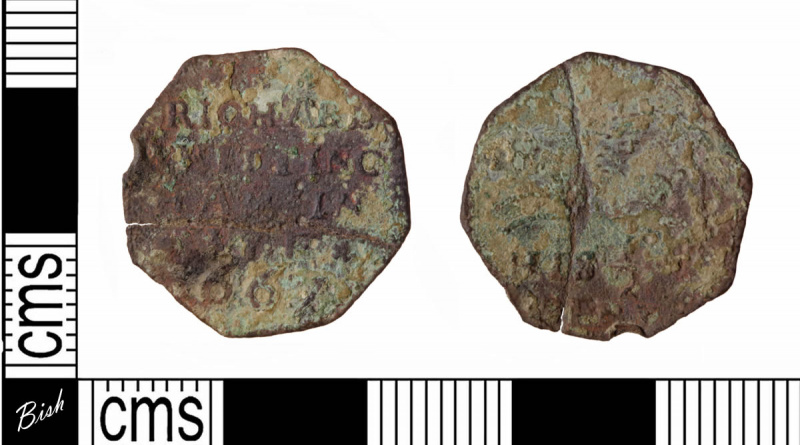Halfpenny token of Richard Whittingham of the Flying Horse
Trade tokens are reasonably common detecting finds and this one is in pretty poor condition but is intriguing as, unusually, the 17th century premises still exist and there’s a couple of interesting quirks to the business name.
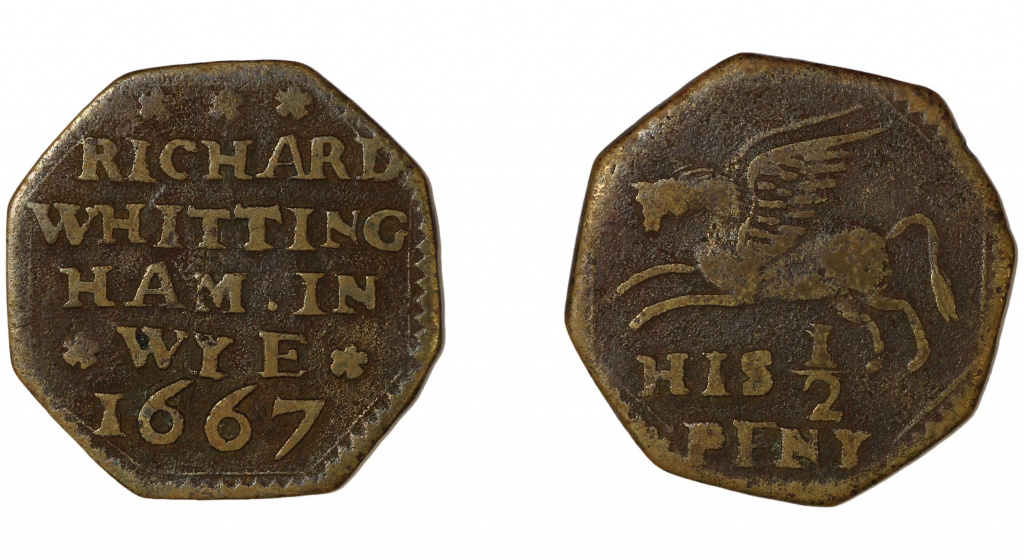
Here is a better example from the British Museum. It reads Richard Whittingham In Wye 1667 over 5 lines on the obverse. On the reverse, a winged horse and “HIS 1/2 PENY”
Old Flying Horse
The building that housed the Flying Horse dates to the late C14 and has been used as a house, student hostel and Inn. It was hostelry from the 15th Century to 1956.1
In 1863, it is reported that “This inn is still in Wye. It was new fronted a few years since; the interior was not then altered, and is believed now to much the same as when Richard Whittingham was host of the Flying Horse, on the green, the oldest and formerly the principal inn of the interesting old town of Wye“.2
The Old Flying Horse is the building on the corner, with the green in front and the entrance to Wye College on the left. On the 1909 postcard is visible “Rigdens Ales” and a hanging pub sign
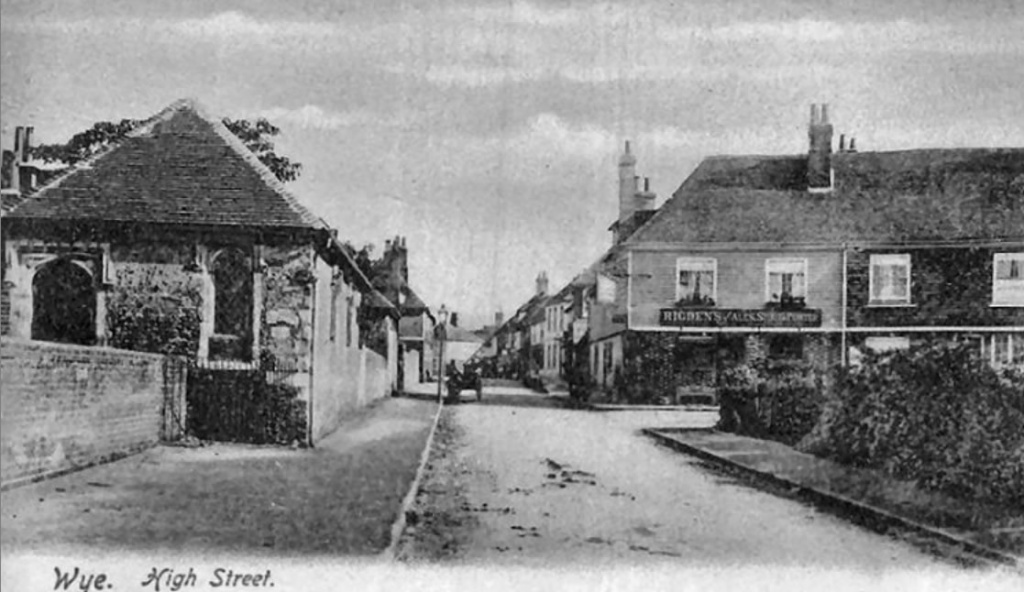
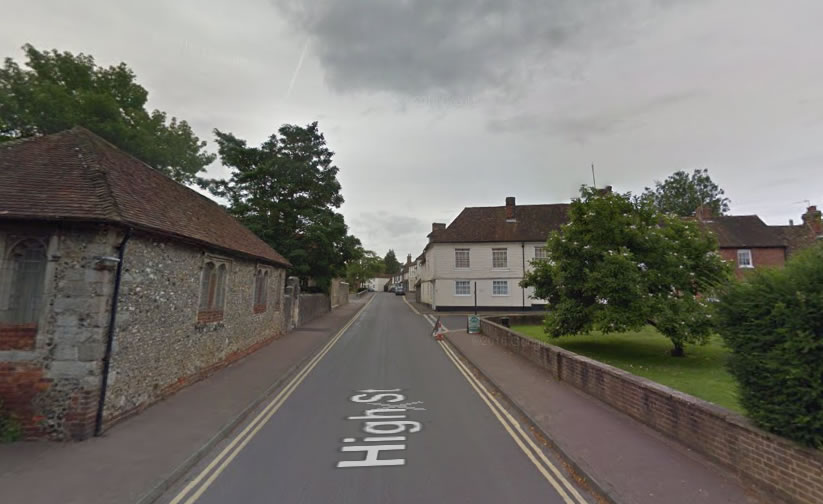
New Flying Horse
By 18324, a new public house opened in the street around the corner called the “New Flying Horse”5. A second pub with an almost identical name so close by must have caused some confusion, particularly after a couple of beers.
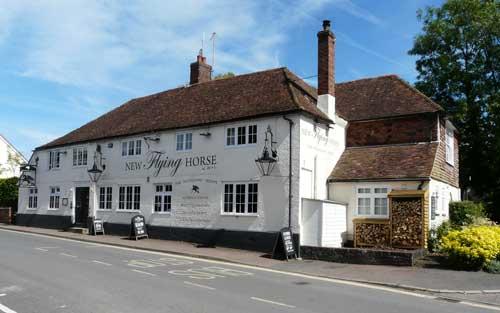
The New Flying Horse is very much still in business, being named Pub of the Year by the brewery Shepherd Neame in 2023.
Earls of Nottingham and Winchelsea
The Earls of Nottingham and Winchelsea was a title passed down through the Finch family.
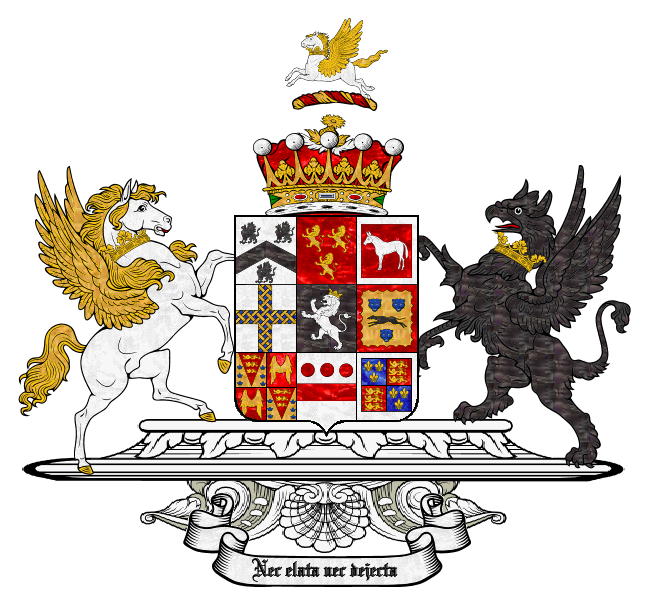
They were once the Lords of the Royal Manor of Wye and Hereditary Governors of Wye College until 1946.6
Hineage Finch II. Heneage II and his wife, the poet Ann Finch, lived in part of the college from 1690 to 1708. Heneage II was the son of Heneage Finch (baptised in Wye in 1628).
Their monogram and emblem of the Finch family was the Flying Horse.
A white horse rampant is a symbol of Kent. The winged horse on the Finch’s coat of arms may reflect their long association with the county.
Stagecoach
There is an obvious connection between the name of the Flying Horse Inn and the emblem of the Finch family. However, that may well just be a coincidence as there are a lots of “Flying Horse” inns in England. They were usually coaching inns which got their names after the emergence of the stagecoach trade in the 17th century. These services were known as the “flying horse” to emphasise the speed of travel.
This reason for the name of the Flying Horse would also explain why the New Flying Horse inn chose that name too, as it was also a former coach house.
References
- Old Flying Horse, Dover-Kent Archives
- Kentish tokens of the Seventeenth Century by H. W. Rolfe, p139, 1863
- Old Flying Horse, High Street, Wye, Ashford, www.pubhistory.com
- New Flying Horse, Dover-Kent Archives
- PIGOT’S NATIONAL & COMMERCIAL DIRECTORY 1832/33/34
- WYE The Journal of the The Wye College Agricola Club, Volume XIX, 2021/22, p23

